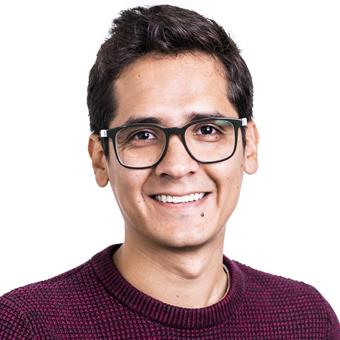BT Welcomes a Guest Researcher from Sweden

Guillermo Pérez Castro is earning is doctorate degree through a collaboration project between the Division of Communications and Transport Systems at Linköping University, and the Swedish National Road and Transport Research Institute (VTI).
Prior to pursuing his doctorate, Guillermo earned a Bachelor’s Degree in civil engineering in 2012 from the Universidad Iberoamericana in Mexico followed by a Master’s Degree in Transportation and Geoinformation Technologies at the KTH Royal Institute of Technology in Sweden in 2020. With this background, his expertise includes roadway design and management, road safety, traffic modeling and simulation, and data science. He has applied this background in recent years to improve modeling support for planning for more sustainable modes of transportation, including bicycling.
Now focusing on the dynamics of bicycle traffic flows, the aim of his doctoral research is to advance the developments of microscopic models to produce more accurate microscopic simulation of bicycle traffic. Through improved simulation support, he argues it is possible to reliably assess the performance of bicycle traffic and the effects of changes to transportation choices—e.g., growing popularity and use of e-bikes, or increasing demands on bicycle infrastructure as more people switch to bicycling from other modes of transportation.
During his 1-month stay in Wuppertal, Guillermo will collaborate with our team to study bicyclists‘ behaviour through semi-controlled experiments conducted here and in Linköping.His aim is to characterize how infrastructural elements (e.g., gradient, curves) impact free riding (uninfluenced by other road users) to develop and calibrate a model for simulating how bicyclists interact with those elements. Considering the human-powered nature of bicycling, he also seeks to explore the feasibility of including perceived effort as a relevant input driving the simulation of free riding. The intended outcome of this collaboration and his doctoral research is to improve the accuracy of speed choice modeling and travel delay estimation.
Learn more about Guillermo’s research and view his profile pages at Linköping University and VTI.
